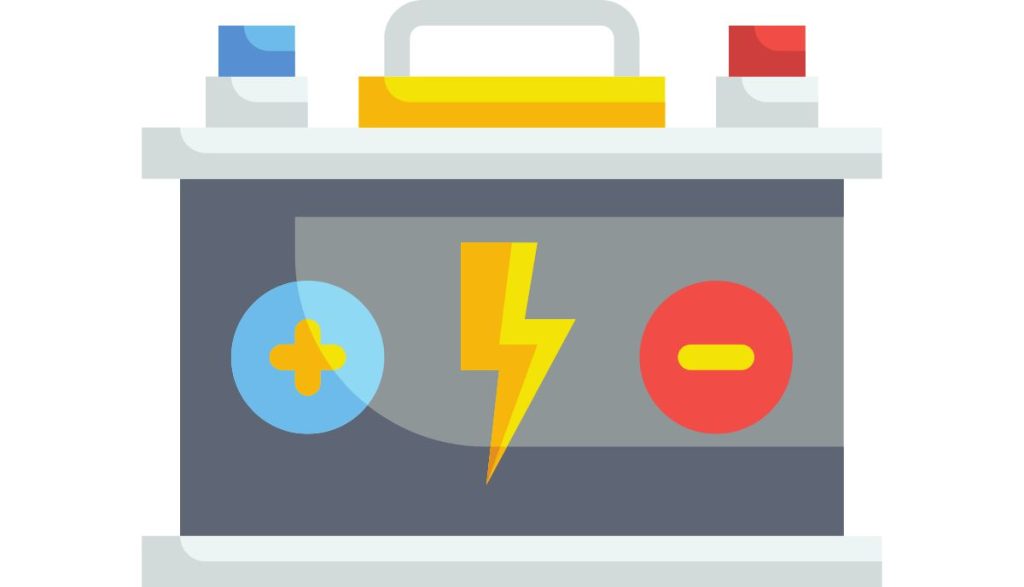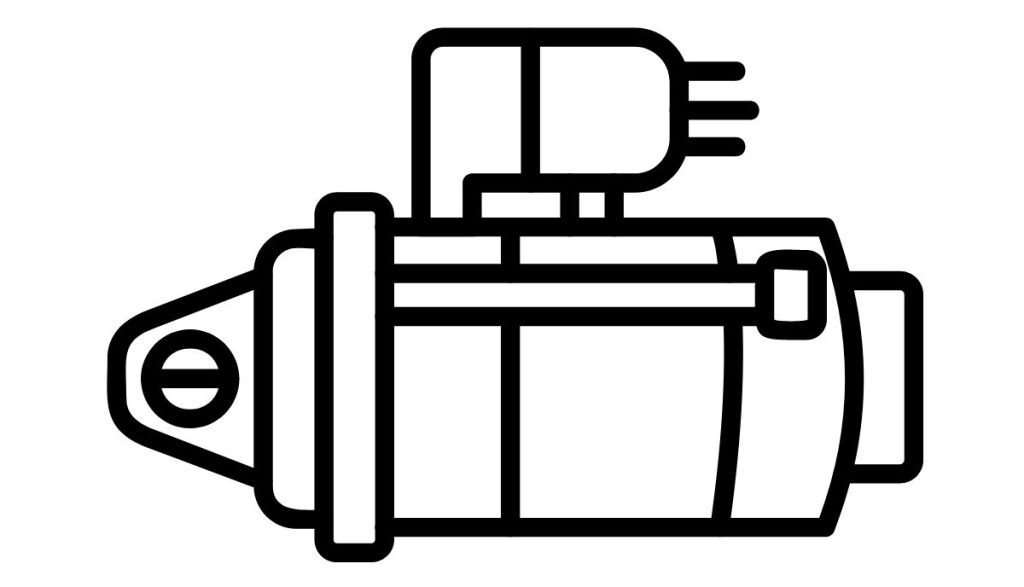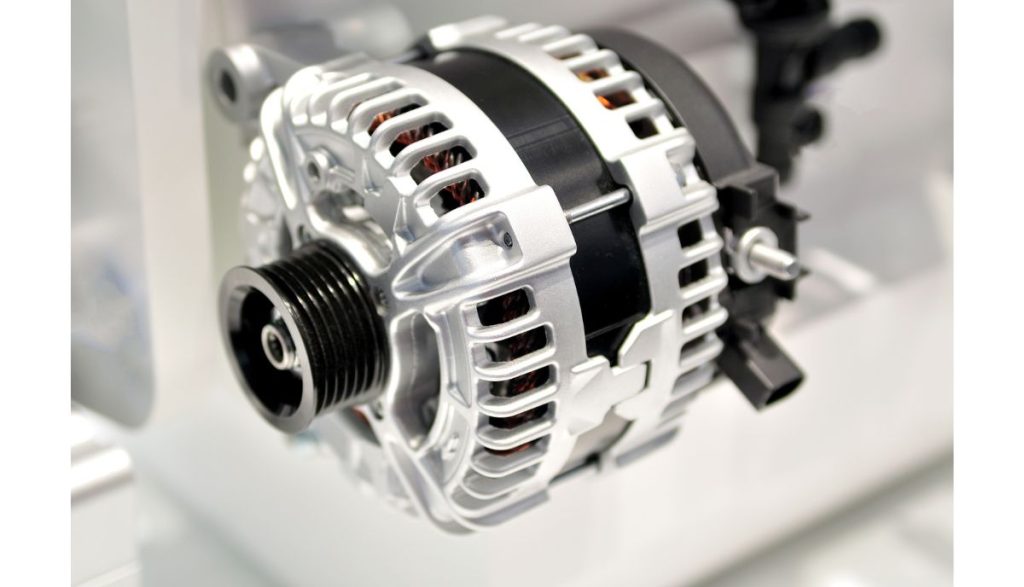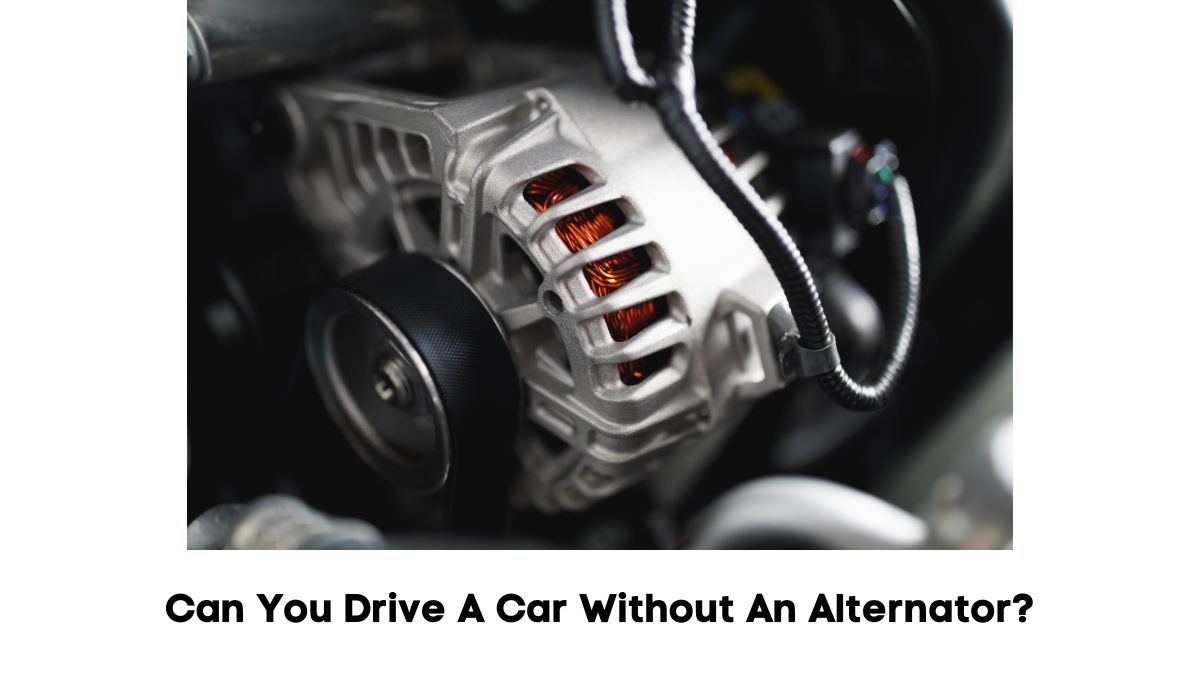Everyone knows a battery is vital to a car’s operations, but what about the alternator? To understand this, you must first make sense of the relationship between batteries and alternators. This is everything you should know:
1). What The Battery Does?

The battery is a car’s primary electrical source. Batteries turn chemical energy into electrical energy that supports a vehicle’s electronics. Your mechanic has probably informed you that a battery starts the car. He’s not wrong. Although the battery performs this role indirectly.

The starter is technically responsible for starting the vehicle. But it can’t execute this task without energy from the battery. The starter motor rotates the flywheel. The flywheel turns the crankshaft, which, in turn, moves the pistons.
2). What The Alternator Does?
Some people confuse the alternator and the battery because they appear to perform similar functions. They both act as sources of energy. However, while the battery makes electrical energy out of chemical energy, the alternator acquires its electrical energy from the engine’s mechanical power.

It makes an alternating current when the crankshaft uses a serpentine belt to turn the alternator’s pulley. That alternating current becomes a direct current after transitioning through diodes. Eventually, a voltage regulator sends the DC to the battery.
3). The Relationship Between The Battery And Alternator
While the battery starts the car, the alternator generates the current that runs the vehicle’s electronic components. That includes the clocks, radio, and lights. Many people expect the battery to perform this task, but the alternator takes over once the car starts.
More importantly, it recharges the battery. This is why the battery discharges completely in vehicles that rarely run. The alternator can only make electrical energy to recharge the battery when the engine starts. Without the engine, the alternator will remain inactive, and the battery will deplete its charge.
4). Why A Car Can Run Without An Alternator
Because batteries and alternators provide the car’s electrical power, the vehicle will malfunction if you remove them. This is what you should know:
1). Driving Without A Battery
You cannot start a car without a battery. Some people expect the alternator to step into this role when you remove the battery. However, the alternator can only transmit electricity. It doesn’t store the current.
This is why you need a charged battery to start a car. It provides the current the starter motor uses. But if the vehicle is already running, an alternator can keep it running in the absence of a battery.
But that is not an excuse to remove the battery. Quora has noted that a battery keeps the car’s power supply stable. The alternator’s energy output is comparable to a pulse. It has highs and lows that can harm the electronics. The battery acts as an electrical buffer. Therefore, you will notice its absence.
2). Driving Without An Alternator
You don’t need an alternator to start the car. The battery will perform that function. But what happens when you attempt to drive the car without an alternator? The battery can perform the alternator’s tasks. It can run all the electronics you have.
But there’s a problem. Without the alternator, the battery cannot recharge. Eventually, you will deplete the battery’s charge, and the vehicle will stop. In that regard, you cannot drive a car without an alternator, at least not in the long run.
In fact, if the alternator dies, you are better off calling a tow truck. You don’t want to get stranded because your car died on the way to the mechanic.
How Long Can You Drive A Car Without An Alternator?
The car may last a few minutes or several hours but won’t exceed 200 miles. The following factors will influence the duration:
1). The Battery Capacity
This goes without saying. The bigger the capacity, the more power a battery can hold and the longer it will last.
2). The Battery Charge
The battery charge and capacity go hand in hand. A fully charged battery may last hours, depending on the electronics you activate. But if the battery was nearly depleted when the alternator died, the car may refuse to start.
3). The Age Of The Car
How old is the vehicle? Older models have an advantage in this category. A paper in Machines 2022 noted that a car’s electrical demands have grown considerably over the years. This is where older cars tend to excel.
First of all, they have fewer features and functions. Secondly, vital components such as the fuel pump are mechanical. This allows the vehicle to run for longer periods because it doesn’t strain the battery.
4). The Number Of Electronics You Use
The battery’s only job was to energy the coil to the spark plugs. Therefore, it took them a long while to deplete the battery. The opposite will happen if you prefer to blast the air conditioner and listen to music.
The newer the vehicle, the more sophisticated features it offers, and the faster it will deplete the battery. You don’t have the option of turning everything that uses the battery off because many of the parts your vehicle uses to function are electrical. Everything from the brakes to the steering wheel relies on the batteries.
Precautions To Take When Driving Without An Alternator
Driving a car without an alternator is risky. It creates various challenges, for instance:
- Your car may stop unexpectedly, stranding you in an unsafe location at a time when tow trucks are unavailable to you.
- You can extend the battery’s life. But that means driving without the amenities you need, such as headlights and heating.
- Accidents are more likely to occur, especially if components like the steering and brakes rely on the battery. Additionally, the limited charge in the battery may force you to drive without headlights at night, which is dangerous.
You’re unlikely to damage the engine. People worry that driving without an alternator will do irreversible harm to the car. However, the battery is the only component you will hurt. Discharging it completely will lower the battery’s lifespan. Otherwise, you should be fine, especially if you apply the following precautions:
- Make sure your battery is healthy. A car battery can last five years. Don’t force the item to exceed the lifespan stated in the manual. A newer, healthier battery will last longer. If you’re just driving to the repair shop nearby, you can make the trip without depleting the battery completely.
- Make sure the battery is fully charged before you start your journey. Use a battery tender. The more charge the battery has, the longer it will take to discharge.
- Don’t drive without an alternator for long periods. The goal is to protect the battery and to reduce the chances of an accident. Stick to short journeys.
- Switch all the electronic components off. Don’t waste energy on functions you don’t need. You don’t want to strain the battery.
- Start the car as quickly as possible. Turning the key numerous times wastes energy on the starter motor. Additionally, don’t start and stop the car unnecessarily. Again, you waste energy every time you start the vehicle.
- Keep an eye out for factors that typically drain the battery, such as bad cables and corroded terminals. You should know that old batteries cannot hold as much charge as new batteries.

